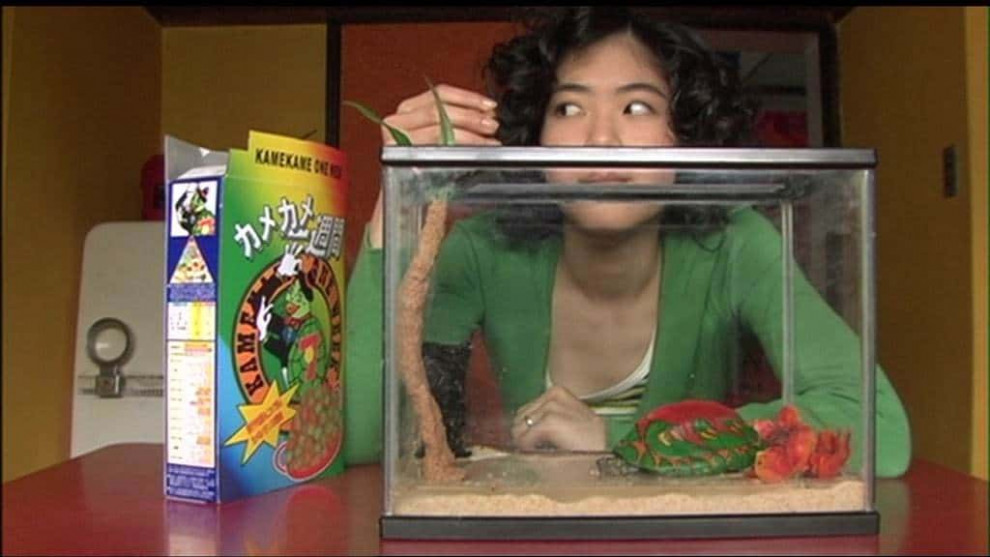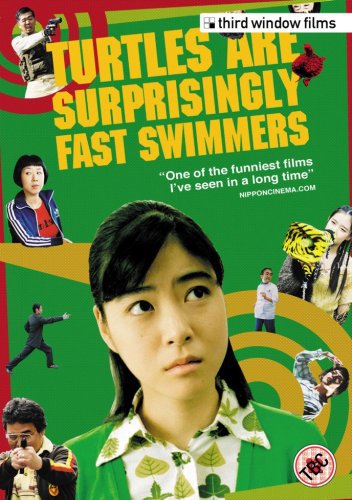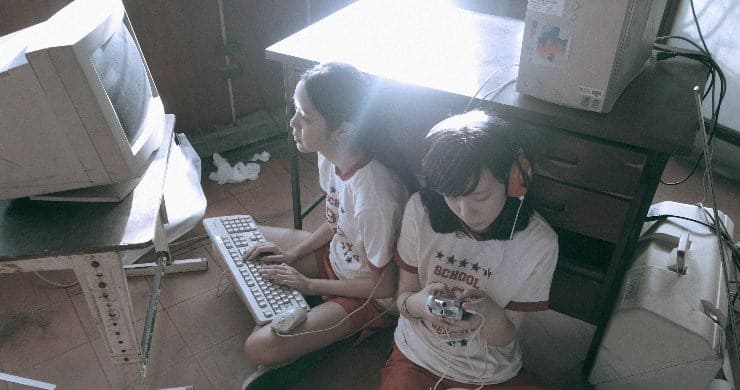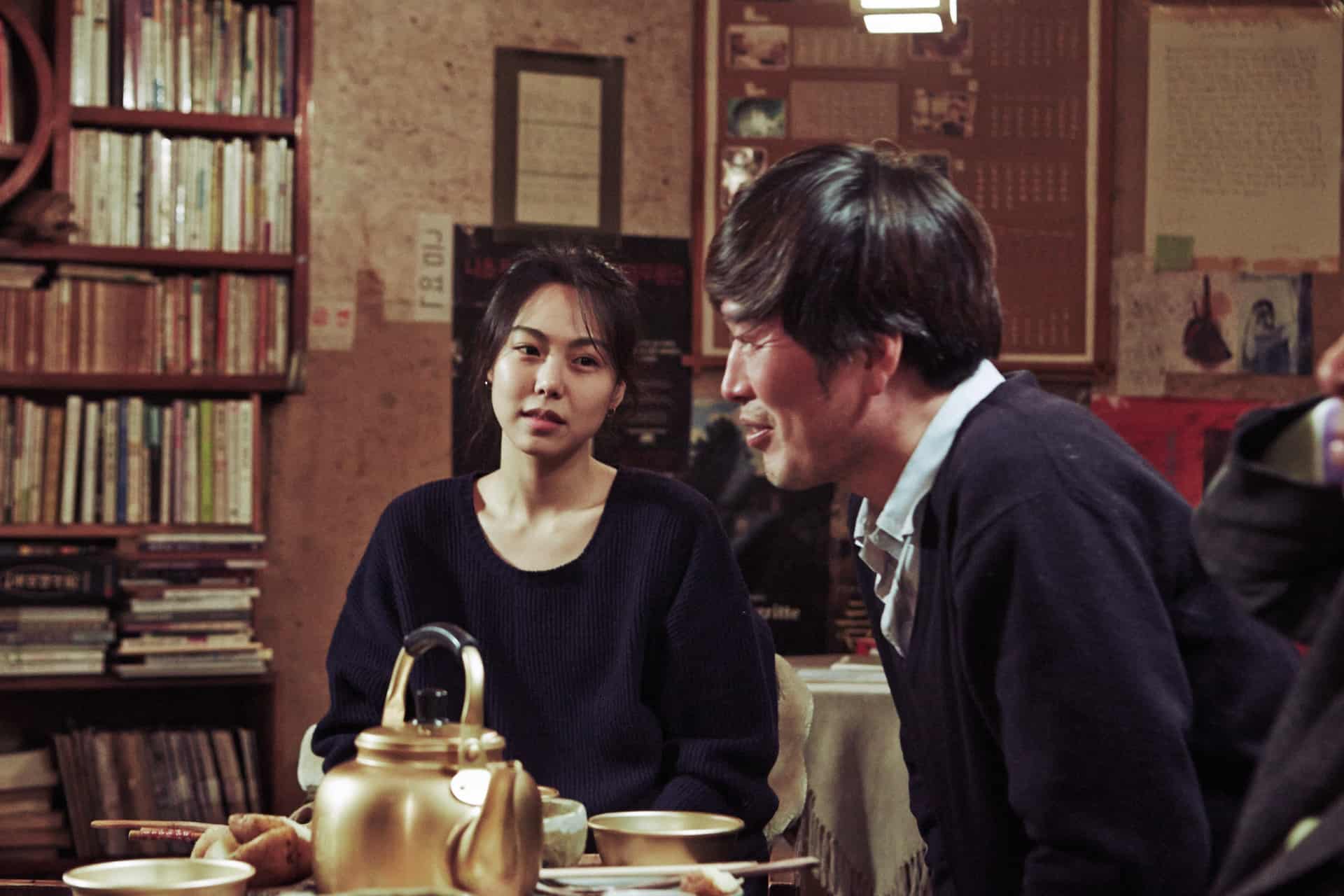The second film of Japanese writer and director Satoshi Miki is a “miscellany of characters” reminiscent of Jean-Pierre Jeunet's “Amelie” albeit lacking “both sentimentality and humor” according to reviewer Emma Slawinski, whose focus is also on the missing plot of the film. Even though her review may be harsh, it nevertheless points at some of the aspects of the film as well as Satoshi's body of work as a whole.
Having worked within the Japanese TV industry, the director was responsible for TV movies, mostly in the field of drama, until he eventually ventured into feature films for the cinema. In an interview following the release of his most popular film in the West, “Adrift in Tokyo” (2007), he claims his style of infusing often nonsensical comedy in everyday situations is derived from the British comedy group Monty Python. Apart from both countries being islands, British audiences thus understand the humor of his films better and do not expect a slow build until the humor can work. Considering the often depressing routine of his protagonists ranging from housewives to salarymen, the world of these characters is completely changed through the absurd underbelly of the urban environment, similar perhaps to the work of his Satoshi's colleague SABU (“Monday”, “Dangan Runner”) or the comedies by Takeshi Kitano such as “Getting Any?”.
Buy This Title
“Turtles Are Surprisingly Fast Swimmers” is a comedy as well as a study about urban life, isolation and the concept of being ordinary. Referring to Japanese popular culture and stereotypes, filled with wild ideas, the film shows the uniqueness of being unobtrusive.
Suzume (Juri Ueno) is a housewife whose tasks, besides the taking care of her and her husband's apartment, consist mainly of feeding his pet turtle Taro while he is on business trips. Fed up with being ignored and isolated in everyday life and being so ordinary in comparison to her childhood friend Kujaku (Yu Aoi) nicknamed “Peacock”, she searches desperately for ways to make her stand out, her life less boring to her and the outside world. Following an advert offering positions as spies Suzume contacts a strange couple, Shizuo (Ryo Iwamatsu) and his wife Etsuko (Eri Fuse). They tell her about a network of spies working undercover like them within Japanese society, a job which demands her best talent of being, well, ordinary. Even though she has not been given a specific task, Suzume embraces her life as a spy until one incident threatens her position and life when the government suspects spies in the city, leading to a manhunt led by special agents of the Japanese secret service.
As she looks back on her friendship with Kujaku, Suzume thinks of scenes on the beach with the two of them building sand castles. While Suzume has managed to make a small hill of sand, her friend has already started on the roof tiles of a temple made of sand. Additionally, she remembers the days in school when her friend would have stickers of cool bands on her school bag while hers were just ordinary stickers showing animals. A “poor taste in sticker” equals a “poor taste in life” is Suzume's resume thinking of how these incidents have turned out to be a self-fulfilling prophecy given how her life is the very definition of ordinary and poor.
While following the plot of Suzume becoming a spy, Miki's film reveals itself to be a study of what constitutes being normal and ordinary in the first place. To some, this may be a highly subjective entity, but within a universe as crazy, colorful and inventive as the world in which the story takes place, it is quite difficult to make out what “being normal” is, given this context. The opening 15 minutes alone showing the world of Suzume, her apartment that is, exemplifies many things, but nothing one might stereotypically call normal or ordinary. Then again, in a life or rather a society defined by competition, making yourself noticed among the crowd is the goal, while the idea of being part of the great mass, the ordinary people, has become undesirable.
However, being noticed is the central problem. Considering the context of Japanese life, TV culture and music, the stereotype of being normal has been eradicated in the film's universe, creating the demand for spies, people following a so-so lifestyle, job and attitude no one would suspect them of working undercover. Ironically, the spies Suzume meets are anything but unobtrusive, with Etsuko's unhealthy obsession with her pink panda cushion or Shizuo's mysterious bowel movements leading to a hilarious scene with a local plumber, the “Sewer King”, who needs to clean up the latest mess.
Structurally, Miki's film follows a constant row of incidents and scenes, each of which is spiced with absurd, deadpan, and at times nonsensical humor, wonderfully acted by the cast. Supported through many interesting visual ideas highlighting the closeness to TV culture even further “Turtles…” is a cross section through Japanese culture and society, and a funny one at that.
“Turtles Are Surprisingly Fast Swimmers” is a laugh-out-loud comedy about the secret pleasures of being ordinary, with many creative ideas and a great cast supporting them. While not every joke might work as intended, the overall charm of this unique production is undeniable and will likely attract many viewers. This may lack the romance, but not the sentimentality of films like Jeunet's “Amelie”, but given the sheer flow of colors, ideas and stories, each one linked to a specific area of Japanese culture, this is a truly individual work, one which more people should take a closer look at.
Sources:
1) Saroch, Andrew (2013) Interview: Satoshi Miki and Eri Fuse
http://www.fareastfilms.com/?feature_post_type=interview-satoshi-miki-and-eri-fuse, last accessed on: 10/25/2017
2) Cotterill, Simon (2009) Turtles Are Surprisingly Fast Swimmers
http://www.midnighteye.com/reviews/turtles-are-surprisingly-fast-swimmers/, last accessed on: 10/25/2017
3) Slawinski, Emma (2008) Turtles Are Surprisingly Fast Swimmers
http://www.eyeforfilm.co.uk/review/turtles-are-suprisingly-fast-swimmers-film-review-by-emma-slawinski, last accessed on: 10/25/2017)

















